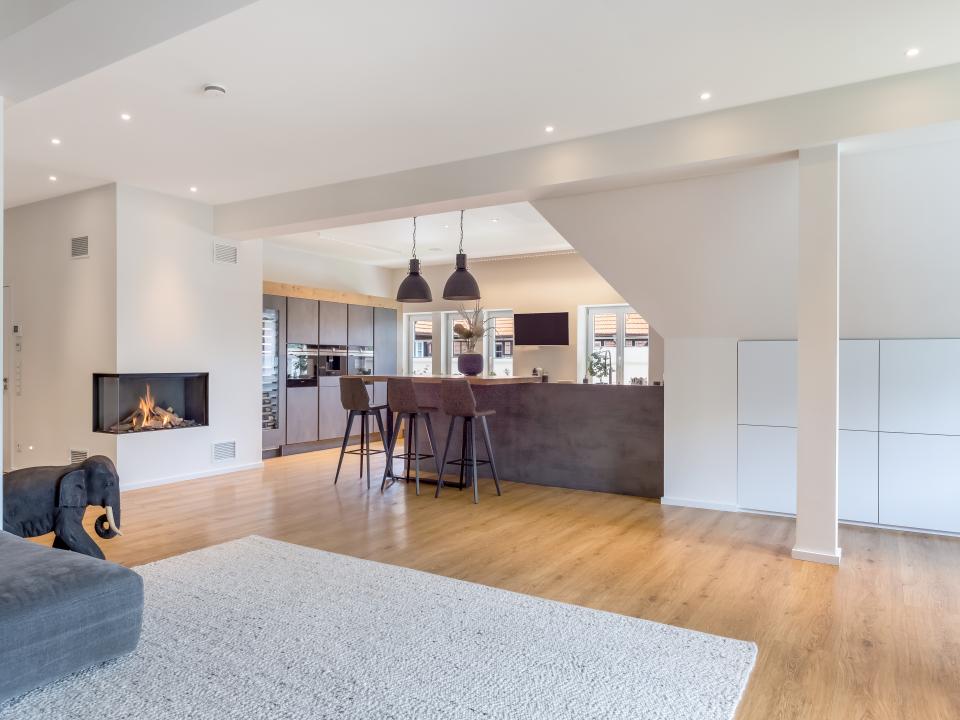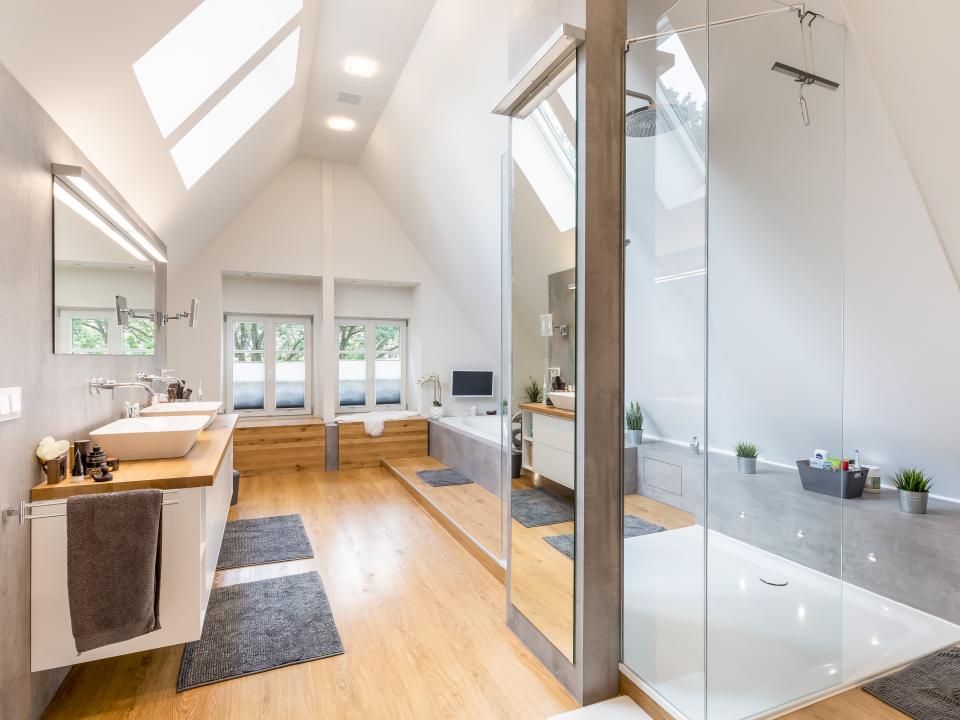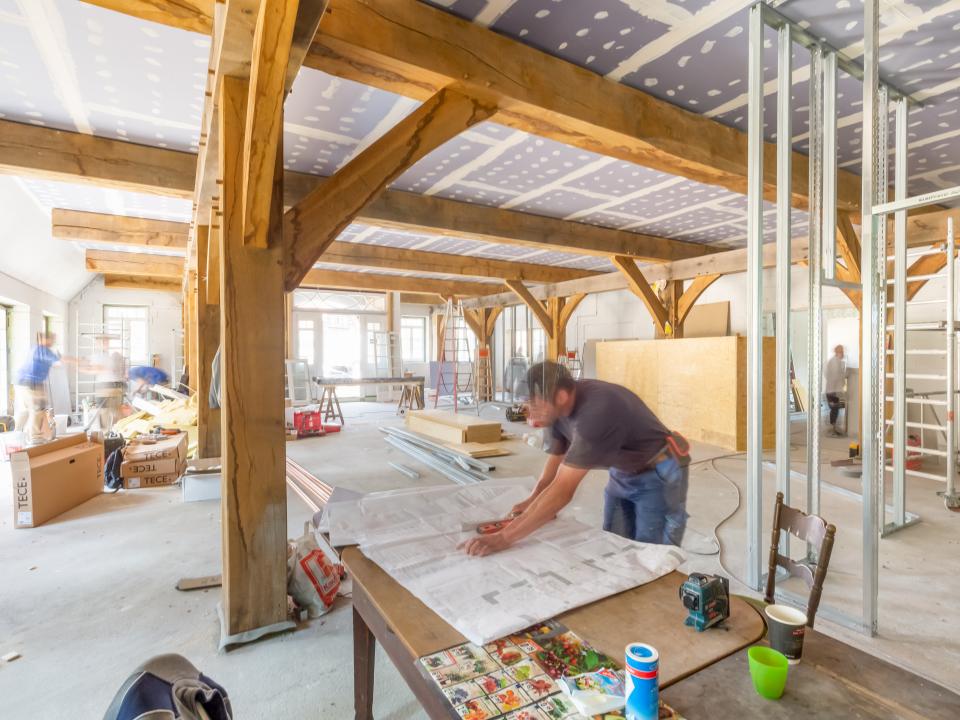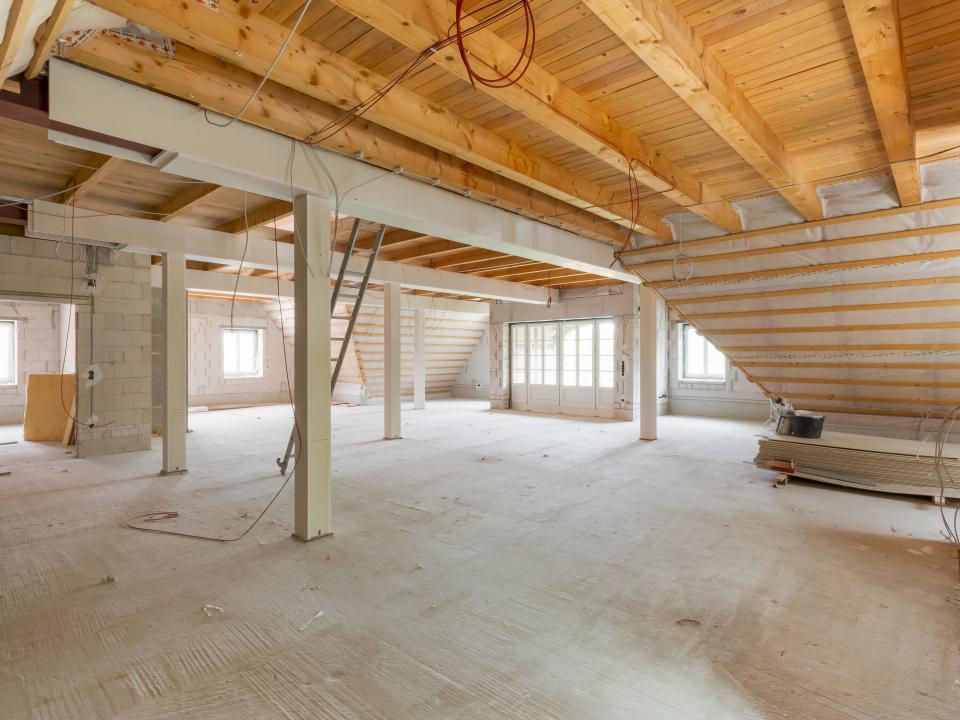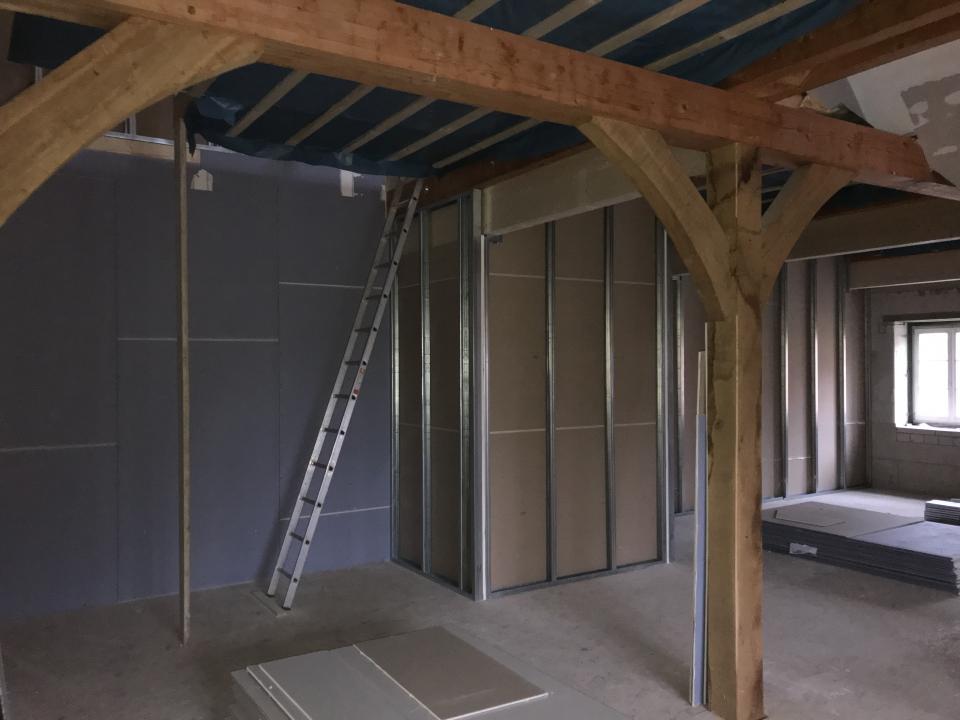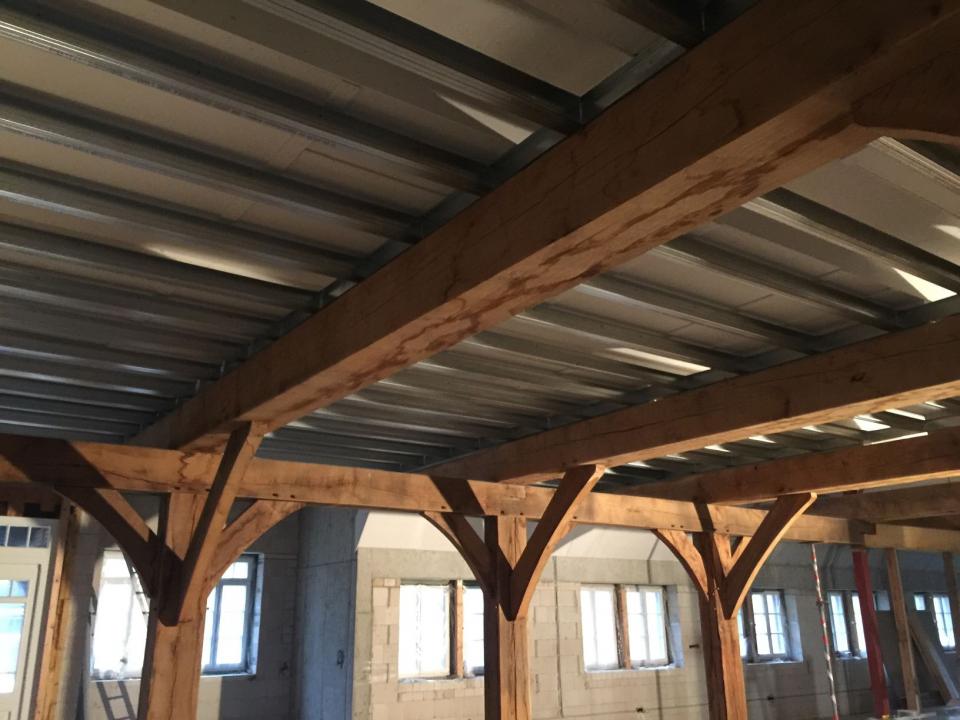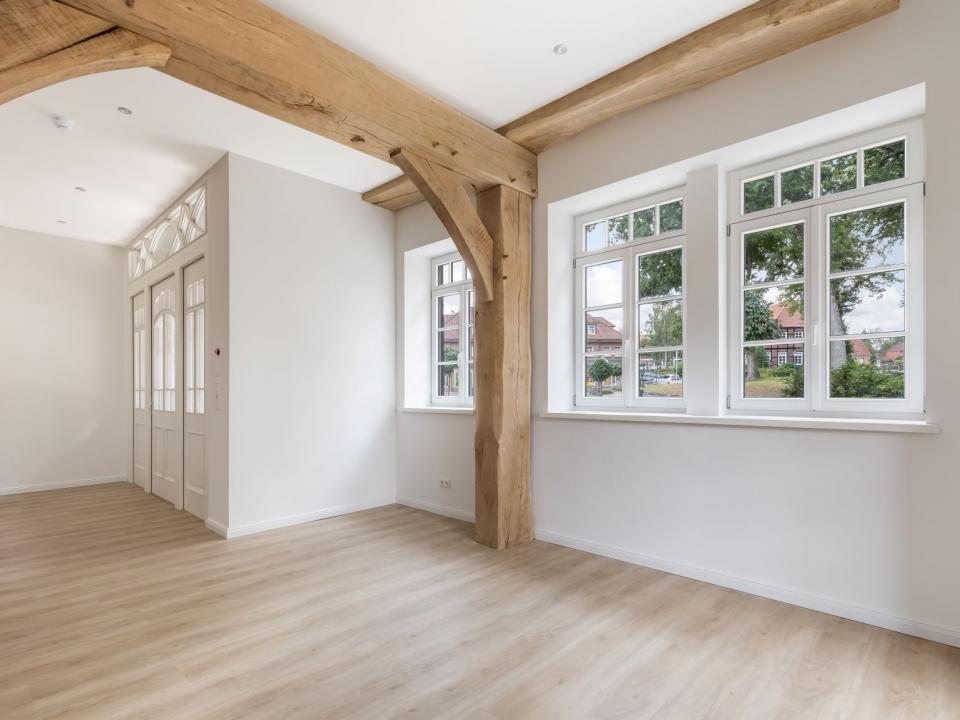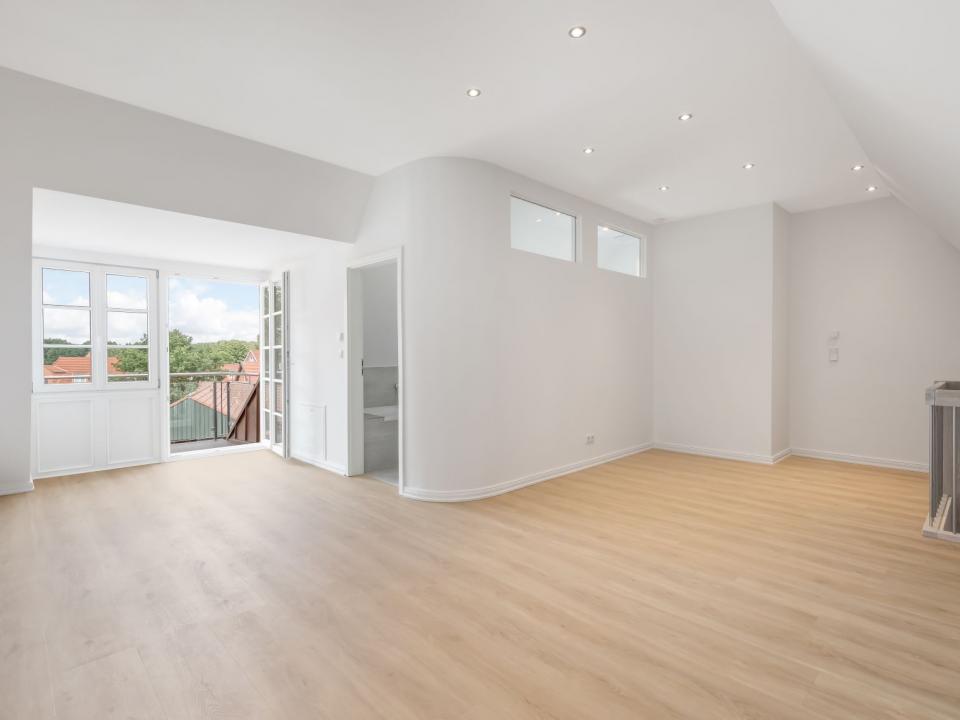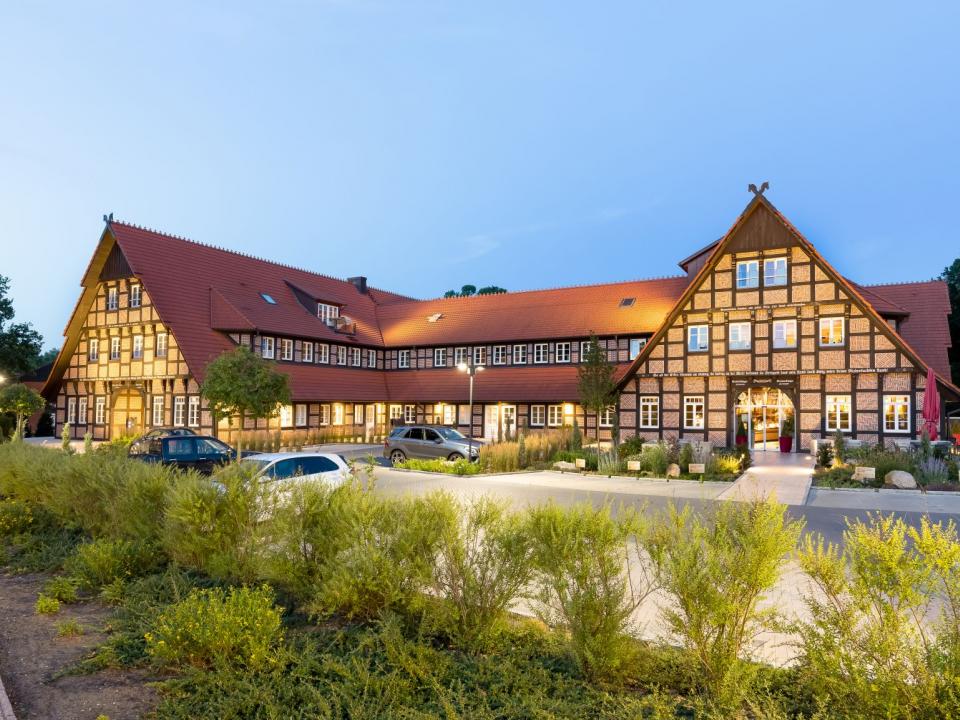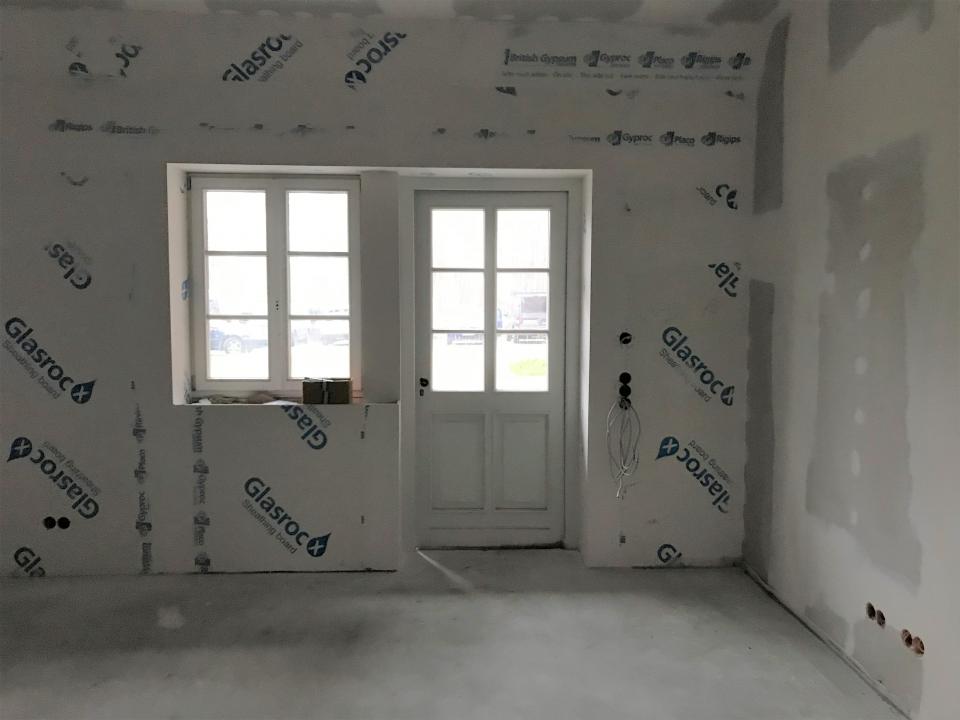Dorfkrug Hanstedt
Project description
In 2006 a devastating fire destroyed the “Dorfkrug”, one of the largest half-timbered houses in northern Germany, which was operated as a public house since 1730 in Hanstedt. Some attempts took place to reconstruct this unique building but quickly came to a standstill. A new investor was finally found and the refurbishment started in 2018 with the aim to restore the building’s original character. In close cooperation with Rigips, the contractor Heide – Aktiv – Trockenbau developed complex dry construction concepts with several special solutions like e.g. a self-supporting fire protection ceiling which let to major cost savings. Within the Dorfkrug’s 3.400 sqm 22 high-quality apartments, a bakery store and an underground car park were built with modern appliances in a vintage style by using wooden beams from other old houses. The result is amazing as it combines harmonically the historical half-timbered charm with contemporary finishing elements.
Contractor
Heide – Aktiv – Trockenbau GmbH & Co. KG
The contractor Martin Lübbert started his career in 1999. In 2009 he finally founded the company Heide Aktiv Trockenbau GmbH & Co. KG in Lüneburg. Due to his successful work his company grew constantly and today he has nearly 50 employees. Heide-Aktiv-Trockenbau is specialised in drylining including fire protection and acoustic insulation.
Key Achievements
- Solutions for all problems were developed in close cooperation between the contactor, Rigips and the architect
- Especially the development of a self-supporting suspended ceiling in the ground floor with a fire protection of 90 minutes lead to cost savings of 70%
- The calculation of the tender was done in only 5 days
- A perfect indoor climate and protection against moisture was achieved by the use of Glasroc X
- High demands on sound insulation, 64 dB were achieved with the Rigips System MW22BB (Rigips Die Blaue)
Key Challenges
For this project neither a specification nor construction drawings were provided. No fire protection concept existed and no static specifications were drawn up. All project information was given verbally and the contractor’ s main challenge was to provide a cost calculation within 5 days. Only 14 days later the construction work started without any of the construction drawings being ready at this time. Therefore an extraordinary technical knowledge was required for the implementation of this project.
